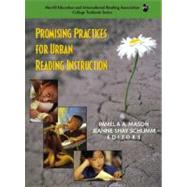
| Children Have a Right to Appropriate Earlyreadinginstruction Based on their Individual Needs | |
| GoodReadingInstruction is More Important Than Who Provides the Instruction or Where it Takes Place | |
| Talking the Walk: Children Reading Urban Environmental Print | |
| Early Literacy for Inner-City Children: The Effects of Reading and Writing Interventions in English and Spanish During the Preschool years | |
| Children Have a Right to Reading Instruction that Builds both the Skill and the Desire to Read Increasingly Complex Materials | |
| A Comparison of Inner-City Childrenrsquo;s Interpretations of Reading and Writing Instruction in the Early Grades in Skills-Based and Whole Language Classrooms | |
| Breaking Down Barriers That Disenfranchise African-American Adolescent Readers in Low-Level Tracks | |
| Children Have a Right to Well-Prepared Teachers Who Keep their Skills Up to Date Through Effective Professional Development | |
| Cultural Attitudes TowardReading: Implications for Teachers of ESL/Bilingual Readers | |
| Know Thyself and Understand Others | |
| Children Have a Right to Access a Wide Variety of Books and Otherreadingmaterial in Classroom, School, and Community Libraries | |
| 3.6 Minutes Per Day: The Scarcity of Informational Texts in First Grade | |
| African-American Childrenrsquo;s Literature That Helps Students Find Themselves: Selection Guidelines for Grades K-3 | |
| Children Have a Right to Reading Assessment that Identifies their Strengths as Well as their Needs and Involves them in Making Decisions about their Own Learning | |
| The Evils of the Use of IQ Tests to Define Learning Disabilities in First and Second-Language Learners | |
| Three Paradigms of Assessment: Measurement, Procedure, and Inquiry | |
| Children Who are Struggling Withreadinghave a Right to Receive Intensive Instruction from Professionals Specificall | |
| Table of Contents provided by Publisher. All Rights Reserved. |
The New copy of this book will include any supplemental materials advertised. Please check the title of the book to determine if it should include any access cards, study guides, lab manuals, CDs, etc.
The Used, Rental and eBook copies of this book are not guaranteed to include any supplemental materials. Typically, only the book itself is included. This is true even if the title states it includes any access cards, study guides, lab manuals, CDs, etc.